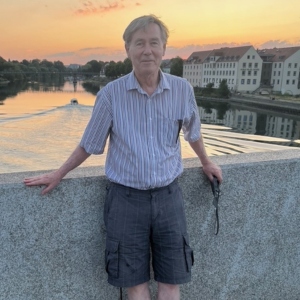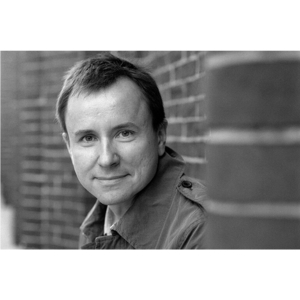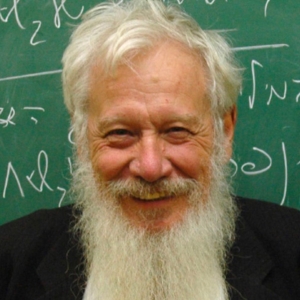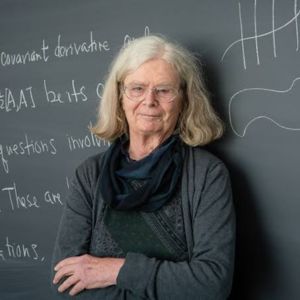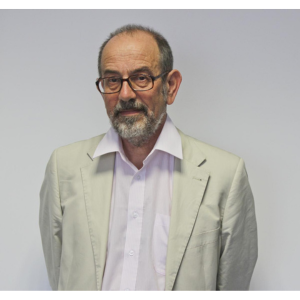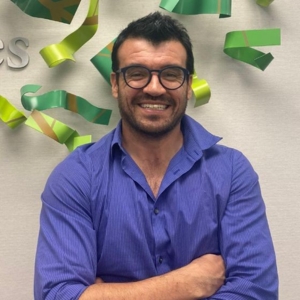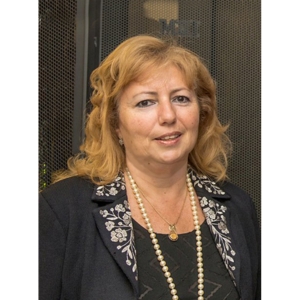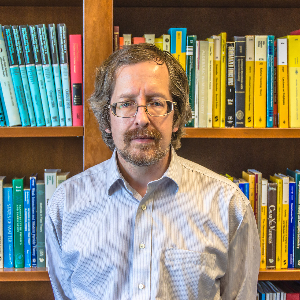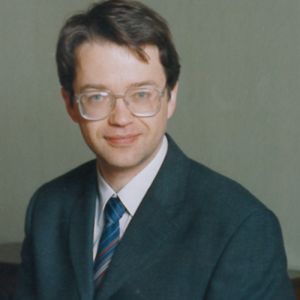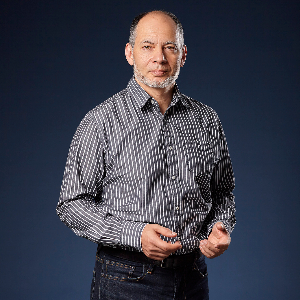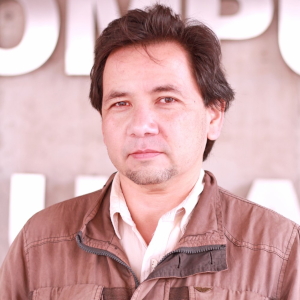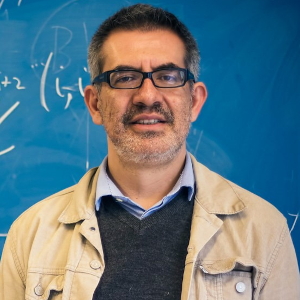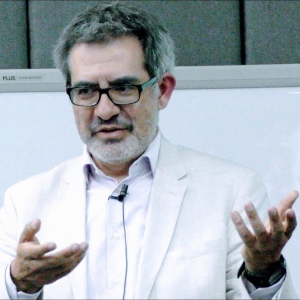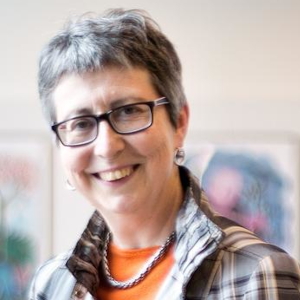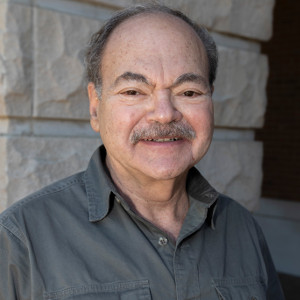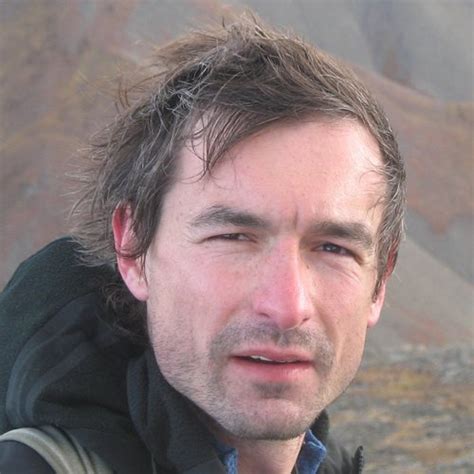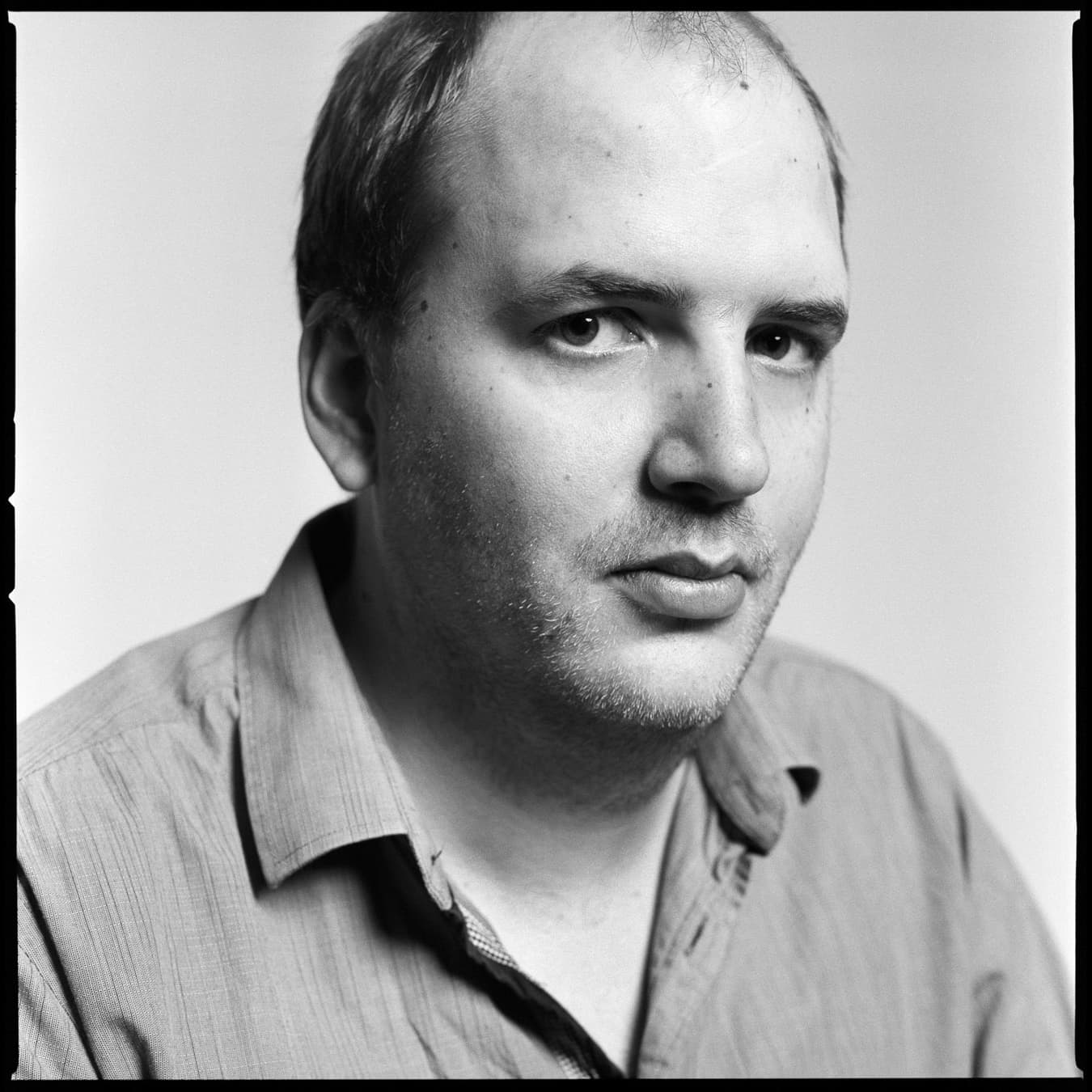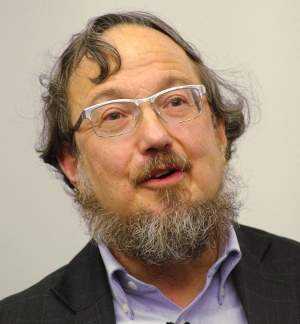Most Recent Lectures
Wednesday, October 2 & Thursday, October 3, 2024, 5pm
Ungar Bldg, Room 528B & via Zoom
Ian Hambleton is the Dr. F. Ronald and Helen E. Britton Professor of Mathematics at McMaster University, where he is also a Professor in the Department of Mathematics and Statistics within the Faculty of Science. He served as the Director of the Fields Institute at the University of Toronto and was previously an L.E. Dickson Instructor at the University of Chicago. His research focuses on topology, particularly in areas such as finite group actions on manifolds and bounded surgery theory. He earned his Ph.D. from Yale University in 1973 and holds both M.Sc. (1969) and B.Sc. (1968) degrees from the University of Toronto. His extensive scholarly work includes numerous influential chapters, journal articles, and conference presentations.
Thursday, February 8 & Friday, February 9, 2024, 4pm
Ungar Bldg, Room 528B & via Zoom
Andrei Okounkov is a Russian mathematician who works on representation theory and its applications to algebraic geometry, mathematical physics, probability theory and special functions. He is currently a professor at the Columbia University and the academic supervisor of HSE International Laboratory of Representation Theory and Mathematical Physics.[1] In 2006, he received the Fields Medal "for his contributions to bridging probability, representation theory and algebraic geometry.
Sunday, February 4th, 2024, 10:30am
Frost Institute for Chemistry and Molecular Science & via Zoom
Yisrael Aumann is an Israeli-American mathematician, and a member of the United States National Academy of Sciences. He is a professor at the Center for the Study of Rationality in the Hebrew University of Jerusalem in Israel. He also holds a visiting position at Stony Brook University, and is one of the founding members of the Stony Brook Center for Game Theory.
December 12, 2023, 3pm & December 14, 2023, 3pm
Lakeside Village Auditorium, University of Miami & via Zoom
Karen Keskulla Uhlenbeck is an American mathematician and one of the founders of modern geometric analysis. She is a professor emeritus of mathematics at the University of Texas at Austin, where she held the Sid W. Richardson Foundation Regents Chair. She is currently a distinguished visiting professor at the Institute for Advanced Study and a visiting senior research scholar at Princeton University.
Uhlenbeck was elected to the American Philosophical Society in 2007. She won the 2019 Abel Prize for "her pioneering achievements in geometric partial differential equations, gauge theory, and integrable systems, and for the fundamental impact of her work on analysis, geometry and mathematical physics. She is the first, and so far only, woman to win the prize since its inception in 2003. She donated half of the prize money to organizations which promote more engagement of women in research mathematics.
December 8, 2023, Ungar Building, Room 528B, Zoom
December 11, 2023, Lakeside Village Auditorium, University of Miami & Zoom
Nigel Hitchin attended Ecclesbourne School, Duffield, and earned his BA in mathematics from Jesus College, Oxford, in 1968.[2] After moving to Wolfson College, he received his D.Phil. in 1972. From 1971 to 1973 he visited the Institute for Advanced Study and 1973/74 the Courant Institute of Mathematical Sciences of New York University. He then was a research fellow in Oxford and starting in 1979 tutor, lecturer and fellow of St Catherine's College. In 1990 he became a professor at the University of Warwick and in 1994 the Rouse Ball Professor of Mathematics at the University of Cambridge. In 1997 he was appointed to the Savilian Chair of Geometry at the University of Oxford, a position he held until his retirement in 2016. Amongst his notable discoveries are the Hitchin–Thorpe inequality; Hitchin's projectively flat connection over Teichmüller space; the Atiyah–Hitchin monopole metric; the Atiyah–Hitchin–Singer theorem; the ADHM construction of instantons (of Michael Atiyah, Vladimir Drinfeld, Hitchin, and Yuri Manin); the hyperkähler quotient (of Hitchin, Anders Karlhede, Ulf Lindström and Martin Roček); Higgs bundles, which arise as solutions to the Hitchin equations, a 2-dimensional reduction of the self-dual Yang–Mills equations; and the Hitchin system, an algebraically completely integrable Hamiltonian system associated to the data of an algebraic curve and a complex reductive group. He and Shoshichi Kobayashi independently conjectured the Kobayashi–Hitchin correspondence. Higgs bundles, which are also developed in the work of Carlos Simpson, are closely related to the Hitchin system, which has an interpretation as a moduli space of semistable Higgs bundles over a compact Riemann surface or algebraic curve. This moduli space has emerged as a focal point for deep connections between algebraic geometry, differential geometry, hyperkähler geometry, mathematical physics, and representation theory. In his article on generalized Calabi–Yau manifolds, he introduced the notion of generalized complex manifolds, providing a single structure that incorporates, as examples, Poisson manifolds, symplectic manifolds and complex manifolds. These have found wide applications as the geometries of flux compactifications in string theory and also in topological string theory. In the span of his career, Hitchin has supervised 37 research students, including Simon Donaldson (part-supervised with Atiyah). Until 2013 Nigel Hitchin served as the managing editor of the journal Mathematische Annalen.
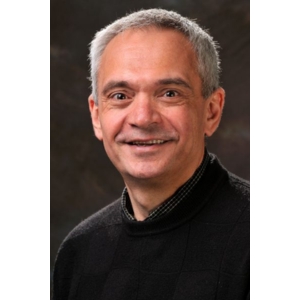
November 20, 2023, 5:00pm, Sofia Time
ICMS-Sofia & via Zoom
Tony Pantev received his Ph.D. in 1994 from the University of Pennsylvania. He was a C.L.E. Moore Instructor at MIT, a Sloan Research Fellow, and has held visiting positions at the Isaac Newton Institute in Cambridge, England, the Centro de Investigación en Matemáticas in Guanajuato, Mexico, Ohio State University and the Institute for Advanced Studies in Princeton. He is a professor at the mathematics department of the University of Pennsylvania which he joined in 1997.
Pantev’s research interests include algebraic and differential geometry, Hodge theory, and mathematical physics. Together with Katzarkov, Toen, and Simpson he has obtained fundamental results in non-abelian Hodge theory, that led to the proof of the Shafarevich conjecture for varieties with linear fundamental groups. Together with Donagi he proved Langlands duality for Hitchin systems, a result that applies directly to mirror symmetry. Elaborating on this work, Pantev, jointly with Arinkin, and Block proved the existence of quantization for Fourier-Mukai transforms for general analytic manifolds. In a different direction, Pantev together with Katzarkov and Kontsevich developed the foundations of non-commutative geometry and non-commutative Hodge theory and studied the non-commutative aspects of the mirror correspondence. In an ongoing project with Toen, Vaquie, and Vezzosi, Pantev is exploring a major conceptual advance in derived geometry which was realized through the new notion of a shifted symplectic and Poisson structures.
Pantev has published over 50 peer-reviewed articles, one book, and has edited 3 proceedings volumes. He has supervised 14 PhD dissertations, 8 MSc students, and has mentored 6 postdocs. organized over 25 conferences, workshops, and schools on algebraic geometry, mirror symmetry, and mathematical physics. He serves on the editorial board of Advances in Mathematics, European Journal of Mathematics, and Research in Mathematical Sciences.
Thursday, November 16, 2023, 5:30pm
Ungar, 528B & via Zoom
The fine-tuning (FT) of the universe for life is the idea that the constants of nature (parameters of physical models of the universe) must belong to very small intervals for life to exist. However, several criticisms have emerged concerning the probabilistic measurement of such life-permitting intervals. Based on a series of recent developments, I present a Bayesian
and maximum entropy framework that addresses several of these concerns. Further, I also present a result that says if tuning is fine or if the level of tuning cannot be assessed for certain families of distributions. Finally, using a recent mathematical theory of learning and knowledge acquisition, I examine whether FT can be learned or if it can only be speculated upon. As a bonus, if time permits, we will also touch on an extension of FT to other areas of science beyond cosmology.
Monday, November 13, 2023, 5:00pm
Ungar, 528B & via Zoom
Navigating the transition from AI/ML theory to real-world application is an arduous task within the swiftly evolving AI landscape. This presentation emphasizes the imperative of establishing practical AI and ML principles, testing platforms, and confronting the associated challenges. The transition from conceptual understanding to real-world implementation presents many opportunities in the rapidly evolving landscape of data science. This talk explores the creation of operational platforms for practically testing AI and ML principles, while addressing the myriad of challenges that arise during this process. We will delve into the foundational concepts that underpin AI/ML systems and emphasize the importance of translating these theories into tangible, operational platforms. By doing so, we can uncover the complexities and nuances that often elude theoretical discussions, making way for practical solutions that drive innovation and transformation. We will present a first-of-its-kind platform to highlight the key principles, strategies, and methodologies required to effectively create operational platforms that empower organizations to turn their AI and ML visions into reality, driving meaningful impact and progress in the field. Attendees will gain insights into best practices that empower organizations to actualize tangible advancements in the field.
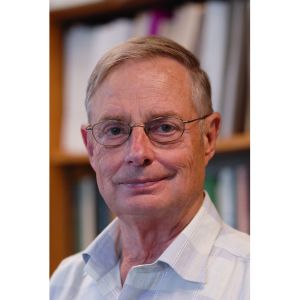
August 10, 2023, 3:15pm (EEST, Sofia Time)
IMI-BAS, Hall 403 & via Zoom
Director Emeritus
Institute for Advanced Study
Arts and Sciences Distinguished Scholar in Mathematics
Department of Mathematics
University of Miami
Phillip Griffiths is one of the most influential geometers of the past half century who has had a singular impact on mathematics and science at large through his service in numerous capacities. Among them, he was Provost at Duke from 1983 to 1991, Director of the Institute for Advanced Study from 1991 to 2003, Secretary of the International Mathematical Union from 1999 to 2006, and member of the National Science Board from 1991 to 1996. He was elected to the National Academy of Science in 1979. He is Professor Emeritus of Mathematics at IAS and Arts and Sciences Distinguished Scholar at the University of Miami.
June 30, 2023
ICMS Sofia, Bulgaria
June 30, 2022 Lecture 1:
June 30, 2022 Lecture 2:
Michael R. Douglas received his PhD in Physics in 1988 under the supervision of John Schwarz, one of the developers and leading researchers in superstring theory.
Douglas is best known for his work in string theory, for the development of matrix models (the first nonperturbative formulations of string theory), for his work on Dirichlet branes and on noncommutative geometry in string theory, and for the development of the statistical approach to string phenomenology. He has influenced the developments of modern mathematics by finding interpretations of branes on the language of derived categories and introducing the theory of stability conditions for categories.
Douglas received the 2000 Sackler Prize in theoretical physics and has been a Gordon Moore Visiting Scholar at Caltech, a Louis Michel Visiting Professor at the IHES, and a Clay Mathematics Institute Mathematical Emissary. He is a fellow of the American Mathematical Society and a member of the American Physical Society, and has served as the editor of the Journal of High Energy Physics and of Communications in Mathematical Physics.
April 12, 2023
April 13, 2023
Alexei Kovalev is a mathematician whose main research area is differential geometry and global analysis. He was a student of Simon Donaldson. He is known for the `twisted connected sum' construction of compact 7-manifolds with holohomy G2 and the Kovalev–Lefschetz fibrations of these manifolds. His other works concerned Ricci-flat 8-dimensional manifolds of holonomy Spin(7), calibrated minimal submanifolds, and Calabi–Yau and hyper-Kähler manifolds.
March 9, 2023
March 10, 2023
Andras Szenes is a world leader of topology, numerical geometry and mathematical physics. He is known for his work on Verlinde conjecture, Hilbert schemes and singularity theory, theory of quantization.
Andras has been a Alfred Sloan Fellow and Bolyai Fellow.
He served on many international committees including ERC committees.
January 17, 2023
January 17, 2023
Andrés Navas is a mathematician specializing in dynamical systems, geometry, and group theory and is a world-renowned expert in ergodic theory. He was a student of Étienne Ghys. For his scientific achievements, he was awarded the MCA prize.
Previous Lectures
July 19, 2022
July 20, 2022
Ernesto Lupercio is a Mexican mathematician – an expert in algebraic topology and mathematical physics and applied Math. He earned his Ph.D. from Stanford University in 1997 under the guidance of Ralph L. Cohen.
For his achievements, Lupercio was awarded the ICTP Ramanujan Prize in 2009.
May 26, 2022
May 27, 2022
Ernesto Lupercio is a Mexican mathematician – an expert in algebraic topology and mathematical physics and applied Math. He earned his Ph.D. from Stanford University in 1997 under the guidance of Ralph L. Cohen.
For his achievements, Lupercio was awarded the ICTP Ramanujan Prize in 2009.
April 18, 2022
April 20, 2022
María J. Esteban is a Basque-French mathematician. She is an expert on PDE and applications to physics and quantum chemistry and has received great recognition for her work. Esteban was an invited speaker at the 2018 International Congress of Mathematicians. In 2019 she received the SIAM Prize for Distinguished Service to the Profession. The same year she became a member of the Academia Europaea. In 2020 Esteban received the French Academy of Science's Prix Jacques-Louis-Lions.
Esteban was president of International Council for Industrial and Applied Mathematics, president of the Société de Mathématiques Appliquées et Industrielles from 2009 to 2012, and chair of the Applied Mathematics Committee of the European Mathematical Society in 2012 and 2013.
She served on the ERC Advanced Grant committee and was a member of the Abel Prize committee in 2014 and 2015.
February 9, 2022
Edward Saff is a mathematician specializing in complex analysis, approximation theory, numerical analysis, and potential theory.
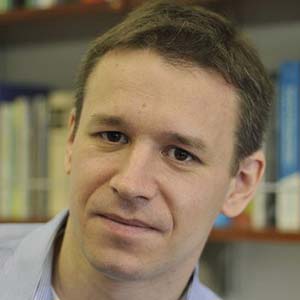
November 16, 2021
November 17, 2021
Sergei Gukov is a mathematical physicist.
He is known for his work on Witten-Reshetichin-Turaev invariants, Gukov-Witten surface operators, and Gukov-Pei-Putrov-Vafa invariants.
For his works he has received the Clay Mathematics Institute Long Term Prize Fellowship (2001-2006) Sloan Research Fellowship in Science & Technology.
November 8, 2021
November 10, 2021
Dennis Gaitsgory is an American mathematician. He is an expert on the geometric Langlands Program.
Among his spectacular achievements are the proofs of the geometric Langlands Conjecture for finite fields and for the field of complex numbers.
For his work Professsor Gaitsgory was awarded the Prize of European Mathematical Society (2000) and Chevalley Prize (2018).
November 1, 2021
November 2, 2021
Karim Adiprasito is a German mathematician working at the University of Copenhagen and the Hebrew University of Jerusalem.
He has transformed into an art applying ideas and techniques from combinatorics to many areas of mathematics. We briefly mention some of his spectacular achievements.
Together with June Huh and Eric Katz, Adiprasito solved the Heron–Rota–Welsh conjecture on the log-concavity of the characteristic polynomial of matroids. Using Mikhail Gromov's work, Adipasito, together with Bruno Benedetti, solved the Hirsch conjecture for flag triangulations of manifolds.
For his work Professor Adiprasito was awarded 2019 New Horizons Prize for Early-Career Achievement in Mathematics. In 2020 he was awarded EMS Prize of the European Mathematical Society.
Ramanujan International Chair
International Centre for Theoretical Physics
October 26, 2021
October 29, 2021
Don Bernard Zagier is an American-German mathematician whose main area of work is number theory. He was a scientific member and one of the directors of the Max Planck Institute for Mathematics in Bonn, Germany, from 1995 until 2019 and a professor at the Collège de France in Paris, France, from 2000 to 2014.
He has been associated with the ICTP in Trieste, Italy, since 2014 and now holds the Ramanujan International Chair there.
For his groundbreaking work Professor Zagier was awarded the Cole Prize in Number Theory in 1987, the von Staudt Prize in 2001, and the Fudan-Zhongzhi Science Award in 2021. He became a foreign member of the Royal Netherlands Academy of Arts and Sciences in 1997, a member of the National Academy of Sciences (NAS) in 2017, and an honorary member of the London Mathematical Society in 2019.



